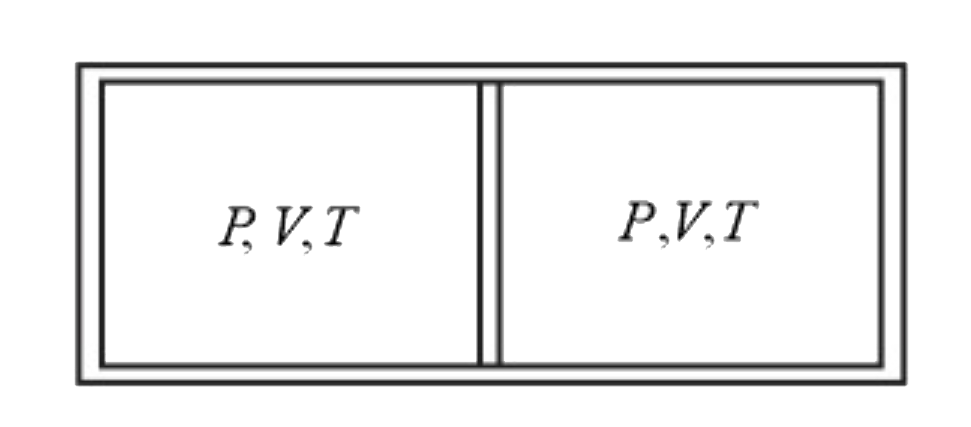Iron filings and sulphur were mixed together and divided into two parts, 'A' and 'B'. Part 'A' was heated strongly while part 'B' was not heated. Dilute hydrochloric acid was added to both the parts and evolution of gas was seen in both the cases. How will you identify the gases evolved?
(i) In part 'A' iron and sulphur will remain as such in the form of mixture. On adding dilute hydrochloric acid, iron will react to evolve hydrogen gas. The gas can be tested by bringing a burning splinter near its mouth. It will burn with a pop sound.
Fe(s)+2HCl(aq)→FeCl2(aq)+H2(g)
(ii) In part 'B' iron sulphur will combine on heating to form greyish black solid known as iron sulphide
Fe(s)+S(s)heat−−→FeS(s)
When dilute hydrocloric acid is added to the greyish black mass taken in a tube, a gas with foul smell similar to that of the rotten eggs will evolve. This is hydrogen sulphide (H2S)
FeS(s)+2HCl(aq)→FeCl(aq)+HS(g)
Topper's Solved these Questions
- IS MATTER AROUND US PUREBook:DINESH PUBLICATIONChapter:IS MATTER AROUND US PUREExercise:SAQs
Explore 23 Videos
- ATOMS AND MOLECULESBook:DINESH PUBLICATIONChapter:ATOMS AND MOLECULESExercise:LONG ANSWER QUESTIONS
Explore 24 Videos
- MATTER IN OUR SURROUNDINGS Book:DINESH PUBLICATIONChapter:MATTER IN OUR SURROUNDINGS Exercise:(LAQs) Long Answer Questions
Explore 5 Videos
Similar Questions
Iron powder and sulphur powder were mixed together were mixed together and divided into two parts A and B. when part A was heated strongly over a burner , then a substance C was formed , the part B was however , not heated at all .when dilute hydrochloric acid was added to substance C , then gas D was evolved and when dilute hydrochloric acid was added to part B them gas E was evolved .
(a) what type of substance is B ?
(b) what type of substance is c?
(c ) Name the gas (i ) D, and (ii) E
(d) state one characteristic property fo gas D.
(e ) Write one test to identify gas E.
View SolutionHow should 1 kg of water at 5∘C be divided into two parts so that if one part turned into ice at 0∘C, it would release enough heat to vaporize the other part? Latent heat of steam=540cal/g and latent heat of ice =80cal/g.
View Solution
Knowledge Check
An examination paper consists of 12 questions divided into two parts, part A and part 8. Part A contains 7 questions and part B contains 5 questions. A candidate is required to attempt 8 questions, selecting atleast 3 from each part. In how many ways can he select the questions?
A240B60C420D480An examination paper consists of 12 questions divided into two parts, part A and part 8. Part A contains 7 questions and part B contains 5 questions. A candidate is required to attempt 8 questions, selecting atleast 3 from each part. In how many ways can he select the questions?
A240B60C420D480A narrow tube is bend in the form of a circle of radius R, as shown in the figure. Two small holes S and D are made in the tube at the positions right angle to each other. A source placed at S generated a wave of intensity I0 which is equally divided into two parts : One part travels along the longer path, while the other travels along the shorter path. Both the parts wave meet at the point D where a detector is placed.
_E01_100_Q01.png)
If the minima is formed at the detector then, the magnitude of wavelength λ of the wave produced is given by :-AπRB3πR2C2πR3D2πR5
An adiabatic vessel of total volume V is divided into two equal parts by a conducting separtor. The is fixed in this position. The part on the left contains one mole of an ideal gas (U=1.5nRT) and the part on the right contains two moles of the same gas. initially, the pressure on each side is p. the system is left for sufficiant time so that a steady state is reached. find (a) the work done by the gas in the left part during the process, (b) the temperature on the two sides in the beginning, (c ) the final common temperature reached by the gases, (d) the heat given to the gas in the right part and (e) the increase in the internal energy of the gas in the left part.
View SolutionWhen conc. H2SO4 was added to an unknown salt present in a test which was heated, a brown gas (A) was evolved. The gas intenstified when copper turning were also added into the test tube. On cooling, the gas (A) changed into a colourless liquid (B).
(a) Identify the gases A and B
(b) Write equations for the reactions involved.
View SolutionA vessel filled with gas is divided into two equal parts 1 and 2 by a thin heat-insulating partition with two holes. One hole has a small diameter, and the other has a very large diameter (in comparsion with the mean free path of molecules). In part 2 the gas is kept at a temperature η times higher than that of part 1 How will the concentration of molecules in part 2 change and how many times after the large hole is closed ?
View Solution(a) When concentrated sulphuric acid was added to an unknown salt present in a test tube a brown gas (A) was evolved. This gas intensified when copper turnings were added to this test tube.On cooling the gas (A) changed into a colourless solid (B). Identify (A) and (B). Writen chemical reactions involved.
(b) Drawn structure of XeOF4.
View SolutionA cylindrical vessel made of thermally insulating material is divided into two equal parts by an insulating and. Movable piston. Both parts contain ideal monoatomic gas . The gas in the left part is supplied heat such that the volume of right part becomes one-eight of its initial volume . Work done by the gas in the right part is

View Solution
